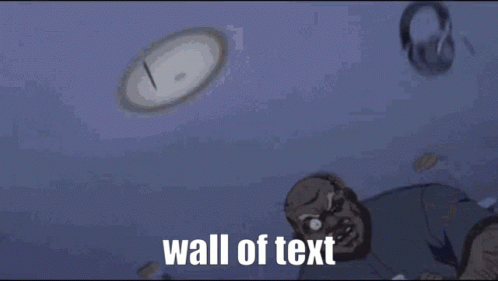This better system is called decay, and it’s how every other ladder that I know of operates.
I assume Blizzard maintains its deathgrip on inflation because they think it feels more MMO-like, where everyone at every skill level gets to progress over time, regardless of actual improvement. Not a suitable system or mentality for a competitive activity, but it fits with their historical decisions and rationalizations.
Even for hyperbole this is pretty hyperbolic. Even if you consider shuffle to be wholesale simpler than premade 3v3 it is still far and away beyond the threshold of sufficient complexity for that to be irrelevant. It is not a solved game, and never will be, and everyone is dealing with the same advantages and disadvantages. This means climbing to a similar point of the ladder will be similarly difficult, assuming all else is the same. The fact that premade has an additional layer of complexity added past the 99th percentile is trivia.
All else is not always the same, of course, which is where any actual additional ease of climbing in shuffle might arise. Participation is the biggest difference, which peaked in season 1. But even there that additional ease is specific to a narrow view: hypothetically if shuffle infused the ladder exclusively with sub-50th percentile players, then everyone who was previously above the 50th percentile would be pushed up inherently. That would be easier in the context of someone only paying attention to the ladder above that point, and who had played before and after season 1 of Dragonflight, but it would be an ease that would rapidly fade into non-existence.
Reality also isn’t that hypothetical. I came back to WoW because of shuffle, and I have played above 2.4k in every season so far. Every single person like me is wiping out the inflationary impact (when talking about breaking 2.4k) of ~97 players who have similarly returned to arena due to shuffle, but who are sub-2.4k players. Maybe the demographics of the infused playerbase does lilt towards sub-2.4k, but I doubt I am unique, and even if only 1 in 200 is eating up a spot above that rating you’re still cutting the impact by like 20%. That impact also still rapidly fades (at this point “has faded” is probably accurate) as returning players shake off most of their rust and are sorted into more-or-less their proper ladder position.
Finally, returning shuffle players are having some inflationary impact on the premade ladder, and I imagine it is relatively greater than they’re having on the shuffle ladder. I use premade as a means of gearing out and learning freshly capped 70s before taking them into shuffle. I get to 1.6k for the token and call it a day. Sometimes I just want to play, and don’t feel like playing one of my healers, and so I’ll look for any random group to do some games with. I imagine shuffle players dabbling in premade is not uncommon, and out of that dabbling I would further imagine that there are far fewer breaking into the highest ranks from it. This further narrows any existing gap.
I touched on it above, but the first part of this quote pretty much answers the second part. The more complex a game is the higher the floor to entry is, but ultimately it’s the same for everyone. So long as a game is complex enough that it can’t be fully solved, the skill ceiling is infinite in a practical sense, and where you find yourself on the ladder comes down to the same thing it does in any game: how well you manipulate the parts of the game that differentiate players. The players higher on the ladder are making better decisions and have better execution than the players lower than them. This is as true in shuffle as it is in premade.
I definitely prefer a game to have more than the bare minimum of depth so I can get lost in the weeds, but even if Blizzard decided to automate half of the current game the ladder would still function through the remaining half where the players have agency. Shuffle also has a very large amount of the same complexity as premade. If you became a multi-R1 shuffle player you would have done the majority of the work you’d need to do to become a R1 premade player, with the bulk of the remaining work being to learn the specific dance between various comps and how to communicate via voice effectively.
Shuffle vs. premade is League vs. DotA with a smaller difference. The latter has a greater barrier to entry, but in the long run the relative difficulty of progressing through the higher tiers is the same.
